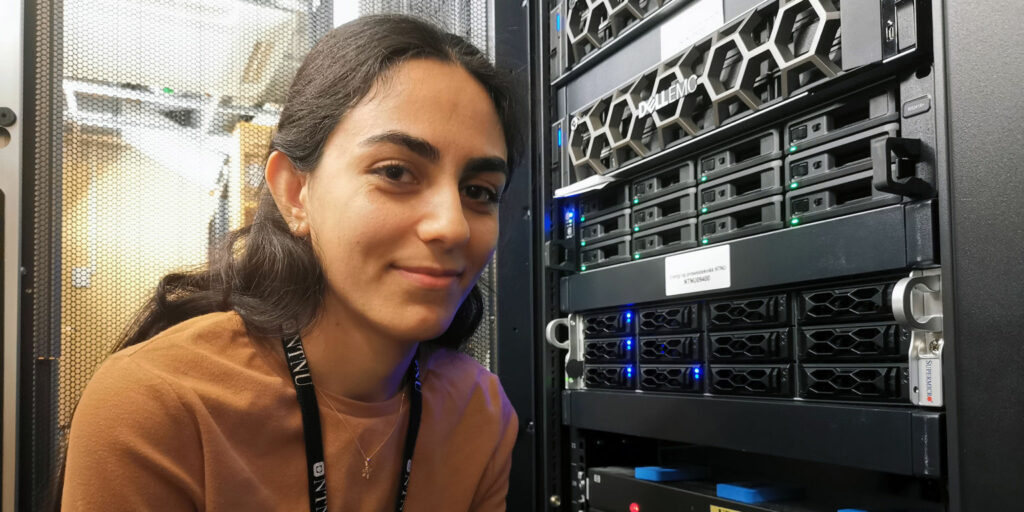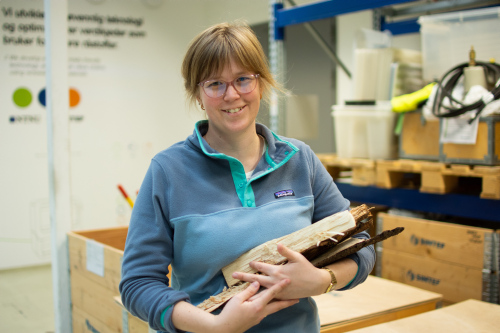Battery testing: developing a new computational tool to reduce experiments

Battery behavior is best studied through experiments. However, time-consuming cycling tests are required to ensure that a specific battery design will perform well over its entire life. I aim to develop a new computational tool for long-term battery testing.
My PhD project aims to develop a tool for accurately simulating lithium-ion battery behavior with the help of machine learning. Using this tool, we can investigate theories of optimized battery design in a more efficient and environmentally friendly digital environment than through laboratory experiments.
A need for more effective methods than experiments
Time-consuming cycling tests in the lab are required to ensure that a specific battery design will perform well over its entire life. Therefore, experiments alone will not be able to meet current industry requirements.
On the other hand, conventional modeling methods, even the most detailed ones, cannot completely reflect battery behavior and the irreversible reaction occurring inside the battery. As a result, we need a more effective method than experiments and a more precise method than conventional modeling.
Reducing costs means more availability of technology
One of the outcomes of this project is to reduce the cost of battery research. The lower cost of lithium-ion batteries means more availability of this technology for the public. Also, digitally conducting destructive battery tests would prevent material waste, resulting in more sustainable battery development.
A combination of models, experimental data and machine learning algorithms
By using simulations and modeling, I intend to understand how a battery will behave when its structure is changed. I will use previously developed open-access computational tools for battery simulation and build on more details if needed. My next step will be researching different machine learning algorithms capable of handling dynamic battery data to find the most suitable method. Additionally, I need a database of measurable battery parameters such as voltage, current, and temperature from different types of batteries. This data will be used to extract the parameters required for the physical model.

Mahshid Nejati Amiri
Mahshid Nejati Amiri is a PhD Candidate at NTNU – Department of Energy and Process Engineering. Her main supervisor is Associate Professor Jacob J. Lamb, and co-supervisor is Professor Odne Stokke Burheim.
Mahshid Nejati Amiri
Search
Søk
Categories
- Arctic Research
- Arkitektur
- Bærekraft
- Bioingeniørfag
- Biologi
- Biology
- Biomedical Laboratory Science
- Biotechnology
- Bioteknologi
- Chemical Engineering
- Chemistry
- Climate
- Computer Science
- Datateknologi
- Digital
- Elektronikk
- Energi
- Energi
- Energy
- Engineering
- Engineering
- Environment
- Food Science
- Forskning
- Fysikk
- Fysikk
- Havbruk
- Informasjonsteknologi
- Informasjonsteknologi
- Ingeniørvitenskap
- Kjemi
- Kjemisk prosessteknologi
- Kjemisk prosessteknologi
- Kreftbehandling
- Kybernetikk
- Marine Technology
- Materialer
- Materials Science
- Materialteknologi
- Matvitenskap
- Meninger
- Miljø
- Min ph.d.
- My PhD
- My PhD
- My postdoc
- Nanotechnology
- Nanoteknologi
- Ocean
- Oil and gas
- Physics
- Research
- Simulering og visualisering
- Spør en forsker
- Studentliv
- Sustainability
- Ukategorisert
- Universitetsliv
- University Life
Kategorier
- Arctic Research
- Arkitektur
- Bærekraft
- Bioingeniørfag
- Biologi
- Biology
- Biomedical Laboratory Science
- Biotechnology
- Bioteknologi
- Chemical Engineering
- Chemistry
- Climate
- Computer Science
- Datateknologi
- Digital
- Elektronikk
- Energi
- Energi
- Energy
- Engineering
- Engineering
- Environment
- Food Science
- Forskning
- Fysikk
- Fysikk
- Havbruk
- Informasjonsteknologi
- Informasjonsteknologi
- Ingeniørvitenskap
- Kjemi
- Kjemisk prosessteknologi
- Kjemisk prosessteknologi
- Kreftbehandling
- Kybernetikk
- Marine Technology
- Materialer
- Materials Science
- Materialteknologi
- Matvitenskap
- Meninger
- Miljø
- Min ph.d.
- My PhD
- My PhD
- My postdoc
- Nanotechnology
- Nanoteknologi
- Ocean
- Oil and gas
- Physics
- Research
- Simulering og visualisering
- Spør en forsker
- Studentliv
- Sustainability
- Ukategorisert
- Universitetsliv
- University Life



